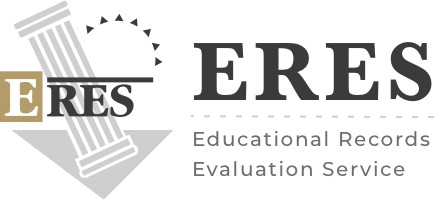Blog
What Are the Challenges of International Credential Evaluation?

Image by Freepik
With the advent of globalization, the world has become more interconnected, and the need for a universally recognized credential evaluation system has become more and more critically required today.
For instance, selecting a candidate for a highly sought-after position is never easy for the HR Department since there are already several internationally trained professionals in Canada. Among the many difficulties faced by the HRs, properly recognizing and assessing the international academic credentials to select a candidate is highly challenging.
Therefore, join this blog on a journey to understand the hurdles of international credential recognition globally.
Common Challenges Faced by International Credential Evaluation
1. Complex Terrain with Diverse Accreditation Standards
The lack of a standardized approach to credential evaluation services is not just a significant obstacle but a pressing global issue, hindering the mobility of skilled professionals worldwide.
This is due to the varying accreditation standards, cultural differences, and diverse education systems that make it complicated to understand and acknowledge credential evaluation on an international scale.
For instance, in terms of diverse accreditation standards, the credential recognition for one country may be less weighty for another. This was shown in the Bologna process introduced by Europe while trying to standardize the degree structures to international standards.
Unfortunately, the method comprises limited countries and only those possessing formal education. On the other hand, another layer of complexity is added to the international credential evaluation in terms of cultural differences. Some qualifications might not be in high regard for countries with different cultures, and they might not understand their value, thereby hindering the career growth of candidates.
2. Internal Differences
The host country must be well-informed about the prevalent education system against measuring the international credential evaluation. Canada can be a suitable example to elaborate on the internal differences in the education system. Each province in Canada has its own criteria and standards. There are huge differences in terms of grades and credits.
Moreover, not all places in Canada have people who can speak English because Quebec doesn’t. In America's case, one must first understand whether the American or US education system is used to evaluate a candidate’s international credentials. All these internal differences within foreign countries make it challenging for credential report evaluators to generate an immigrant’s credential report.
3. Translation Errors
Getting a credential report to apply for a foreign high school diploma or employment in foreign countries and making it understandable by the higher authorities is a major challenge.
There are times when a translator takes liberty while translating the document to a foreign language where, in case of a minute error, there are significant impacts on the applicant’s application. There are times when translators misinterpret high school degrees.
For instance, in the Latin American System, most translators use the term bachelor for a high school diploma instead of Bachiere. Therefore, when the admission committee looks up the report, which is not well trained to know the English language, they might misinterpret that the 17-year-old has completed a bachelor's degree.
However, while comparing it with the transcript, if the university-level subjects are not found, it can lead to further complications. That’s why translators must use the right terminology in the foreign education system to avoid misleading and interrogations about the document's authenticity. After all, the international credential evaluation document is vital for students and job seekers!
Conclusion
International credential evaluation is more than a mere certificate in terms of appearance. It is an adaptable, dynamic, and universally understandable document that showcases a candidate’s unique capabilities.
This document is a catalyst for a revolution in how candidates are honored and validated in the rapidly evolving global landscape. Therefore, it is highly essential that these challenges be addressed with suitable solutions so that people across the globe can gain equal access to grow their careers in the country they desire!
Start Now
ERES
Educational Records Evaluation Service helps Non-US educated individuals to receive their US equivalences with our credential evaluation reports.
Services
Contact us
Tue - Fri: 10:00 to 16:00 ( PST )
4773 Mangels Blvd, Fairfield, CA 94534, USA.
© 2025 Educational Records Evaluation Service. All rights reserved.











